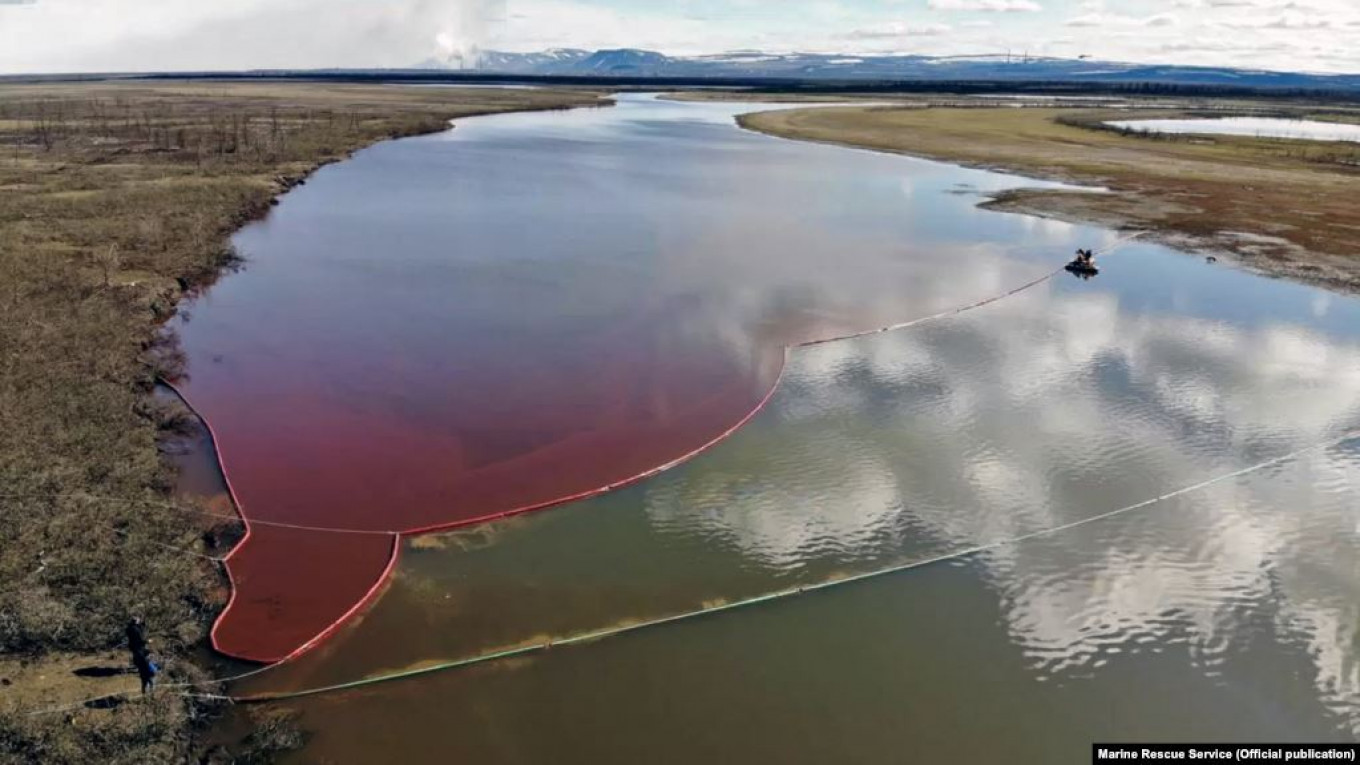Russian President Vladimir Putin on Wednesday ordered a state of emergency and criticized a subsidiary of metals giant Norilsk Nickel after a massive diesel spill into a Siberian river.
The spill of over 20,000 tons of diesel fuel took place on Friday. A fuel reservoir collapsed at a power plant near the city of Norilsk, located above the Arctic Circle, and leaked into a nearby river.
During a video conference, Putin lambasted the head of the Norilsk Nickel subsidiary that owns the power plant, NTEK, after officials said the company failed to report the incident.
"Why did government agencies only find out about this two days after the fact? Are we going to learn about emergency situations from social media? Are you quite healthy over there?" Putin told NTEK chief Sergei Lipin in an unusually stern dressing-down aired on television.
Nornickel has said in a statement that NTEK had reported what happened in a "timely and proper" way.
Krasnoyarsk region governor Alexander Uss told Putin he only "learned of the real situation" on Sunday after "alarming information appeared on social media."
Putin said he agreed that a national state of emergency was needed to call in more resources for the cleanup effort.
Russia's Investigative Committee, which deals with major crimes, announced that it launched three criminal probes into the accident and detained an employee of the power plant.
World Wildlife Fund expert Alexei Knizhnikov said the environmental group was the one who alerted cleanup specialists after confirming the accident through its sources.
"These are huge volumes," he said. "It was difficult for them to cover it up."
The volume of the spill is vastly larger than a major 2007 spill in the Kerch strait of the Black Sea, which involved 5,000 tons of oil, the WWF expert said.
At the time the Kerch spill was the largest of its kind for Russia and required intervention of the military and hundreds of volunteers.
Knizhnikov said diesel fuel is lighter than oil, so it is likely to evaporate rather than sink but it is "more toxic to clean up."
The Ambarnaya river that bore the brunt of the spill will be difficult to clean up because it is too shallow to use barges and the remote location has no roads, officials told Putin.
Environment Minister Dmitry Kobylkin said he thought burning the fuel, which some are suggesting, was too risky.
"It's a very difficult situation. I can't imagine burning so much fuel in an Arctic territory... such a huge bonfire over such an area will be a big problem."
A Message from The Moscow Times:
Dear readers,
We are facing unprecedented challenges. Russia's Prosecutor General's Office has designated The Moscow Times as an "undesirable" organization, criminalizing our work and putting our staff at risk of prosecution. This follows our earlier unjust labeling as a "foreign agent."
These actions are direct attempts to silence independent journalism in Russia. The authorities claim our work "discredits the decisions of the Russian leadership." We see things differently: we strive to provide accurate, unbiased reporting on Russia.
We, the journalists of The Moscow Times, refuse to be silenced. But to continue our work, we need your help.
Your support, no matter how small, makes a world of difference. If you can, please support us monthly starting from just $2. It's quick to set up, and every contribution makes a significant impact.
By supporting The Moscow Times, you're defending open, independent journalism in the face of repression. Thank you for standing with us.
Remind me later.






